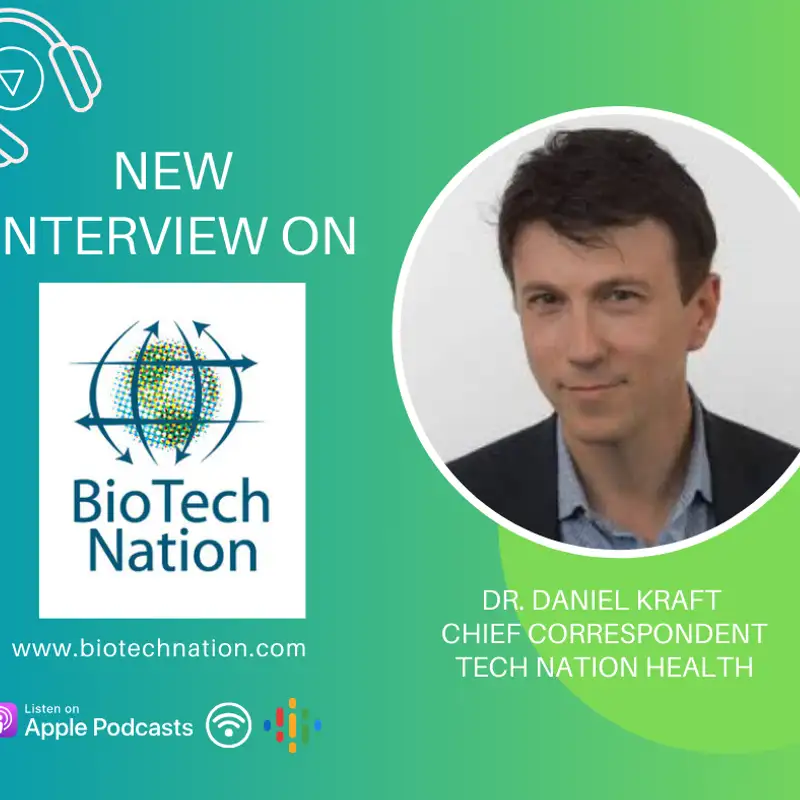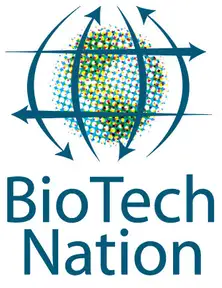The Mystery of "Dark" Proteins... Dr. Daniel Kraft, Tech Nation Health Chief Correspondent
We have thousands of proteins, and we're not even sure what they all do. In fact, we've actually learned there are even more. Tech Nation Health Chief Correspondent doctor Daniel Kraft fills us in on the latest in proteomics. Daniel, welcome back.
Dr. Daniel Kraft:Great to be with you.
Dr. Moira Gunn:Alright. Now let's talk about something. It's a word that every so often kinda flies by my head one way or another. I read it. It's called proteomics.
Dr. Moira Gunn:Spell it for everybody. What is it and why is it important?
Dr. Daniel Kraft:Well, the proteome or proteomics, p r o t e o m I c s, proteomics, is sort of the emerging study or the the large scale study of proteins. Right? Proteins are the building blocks of our living organisms. Right? They when you put them all together, make ourselves, make our organs, make us whole organisms.
Dr. Daniel Kraft:And understanding the proteins and the proteome and the picture of the proteome, particularly those that are floating around in your blood, is becoming a really increasingly valuable way to understand someone's health, to predict diseases before they happen, to sort of analyze a disease and categorize it, and providing new potential targets for personalized medicine and tailored health care that's gonna really, I think, really shift the future of medicine in pretty exciting ways.
Dr. Moira Gunn:Well, I think what's one of the things that's important about what you just said is that, hey, they're the targets of this precision medicine. Why are proteins floating around in our bodies? Lots of proteins there, hundreds of thousands of proteins. Why are they the targets of precision medicine?
Dr. Daniel Kraft:Well, we're all familiar with hopefully getting to the doctor at least once a year and often having our standard, blood chemistries done. And today, you know, you measure your your sodium, your potassium, your creatinine, and a few proteins like albumin in your blood, which might give you an indication of how well your kidney is working or your or your liver is working, I should say. But in reality, there's thousands, you know, ten, twenty thousand, different proteins that are moving through your blood that can be starting to be analyzed. There's companies like SomaLogic and Thermo Fisher that can measure up to 11,000 proteins in just like two microliters, two one thousandths of a a milliliter. So, it's it's an interesting time now to be able to look at those and at still a bit expensive, maybe $500 per individual, but that's gonna get cheaper and cheaper.
Dr. Daniel Kraft:And what's magic about that, so when you can look at several thousand proteins, we can see what's the protein picture of health, what's the protein picture of disease, and what's happening in between. And we're starting to understand what those proteins sort of signatures are. You don't need to measure all ten, eleven thousand or more. You can start to see we know that these 12 proteins change in early Parkinson's or neurolog other neurology diseases or early forms of of cancer. And what's been exciting particularly over the last couple years, particularly out of work out of the UK Biobank, so out of United Kingdom, they've been measuring the proteome as well as the medical history of thousands of Britons.
Dr. Daniel Kraft:And now when the data science folks are starting to understand that, analyze those, and find some pretty amazing, findings through sort of proteomic analysis to the point where measuring three, four thousand participants and looking at their proteomics is enabling you to predict, I think it's up to 67 diseases from multiple myeloma to motor neuron diseases, to pulmonary fibrosis, to heart disease, sometimes months and years before they might show up.
Dr. Moira Gunn:What you know, what you're really talking about here is so often we don't even look at what's wrong until we can tell on the outside that there is a problem. And even when it's on the inside, it's like, it's actually a pretty big problem already. So we're talking about really winding back to the early days. You know, we talk stage one, stage two. These are like stage minus four, stage minus ten.
Dr. Daniel Kraft:I call it, you know, stage zero. And particularly as we put multiomics together, your protein, your proteome, your genome, your metabolomics, your sociom, and sort of integrate that, this idea of the digital twin we've talked about in prior episodes, it's gonna really start to shift how we practice medicine. Because today, a lot of medicine is sort of one size fits all. Moyer, you're my patient. We'll start to give you your colonoscopy at the average age, assuming there's no genetic or family history.
Dr. Daniel Kraft:We'll sort of treat you with the same dose of a statin as everybody else. But now that you might have proteomic data, genomic information, we'll start to predict what's really the time you might need to be screened. And by finding diseases or signs of disease at early stages, that's the time to intervene and move you back to sort of your baseline rather than, as you mentioned, stage three or stage four disease, whether that's neurologic disease, an autoimmune disease, a cancer. That's where the promise of proteomics is gonna be more and more exciting, particularly as it might become part of our annual exam or something you might even do every month.
Dr. Moira Gunn:you this. I'm not exactly sure how many proteins I have.
Dr. Moira Gun:How many different proteins? How many? I'm like, I'm not exactly sure.
Dr. Moira Gunn:How many proteins does a human have? And if we know and what do we know about them? And, you know, are we actually just studying them now? What are we doing?
Dr. Daniel Kraft:Yeah. So it's been just over twenty something years since we had the first human genome sequenced. And as most of the listeners know, your sort of genes get transcribed into RNA and, like, those made into proteins. And earlier on, it was thought that maybe we only had about 30,000 genes that turned it about 30,000 proteins that operated the body. And, some tallies have lowered that to only about 20,000 proteins, which is pretty extraordinary.
Dr. Daniel Kraft:But some new evidence recently published in science and other great journals is, showing evidence of something called the dark proteome that that suggests that we've been missing thousands of non traditional genes, genes that, are encoded a bit differently than than the old old understood methods. And that means we're making a whole new set of proteins often sort of smaller proteins, some with only maybe 12 amino acids that are sort of the basic building box of proteins. So these now are often called non canonical, proteins are really set to maybe open up a whole new era of medicine. So for example, there's a pediatric neuroendocrinologist at University of Michigan called John Pressner who's discovered some of these new, dark proteo and proteins that seem to play a key role in a form of brain cancer called, medulloblastoma. And that these little microproteins are sort of essential for the cancer to to to grow and cause disease.
Dr. Daniel Kraft:So that might mean we have new targets, new drug targets that can target those particular proteins that might help with brain cancers and other cancers. So I think, we're opening up a really interesting new era, and it's gonna be more proteins than we thought we had.
Dr. Moira Gunn:Okay. So we got dark proteins. We got dark DNA.
Dr. Moira Gun:I'm like and every single one of these new ones, they show up, and it's like, oh, we found it. But we don't know anything about it. We don't know how it relates to anything. I mean, there's just so much work ahead.
Dr. Daniel Kraft:Right. Because, again, today, we pick up such a small amount of our data. Right? That chem twenty or chem forty only picks up four 40 different chemistries from your blood, a few of which are are proteins. But now that we're under this age of hopefully low cost democratized proteomics, we'll end up again being able to characterize someone because the proteome changes from day to day to minute to minute.
Dr. Daniel Kraft:Your genome stays the same essentially. But now we'll have potentially new targets. So maybe these new mini proteins will give us new drug development targets. We'll we'll get understand new biomarkers of aging. There's sort of aging clocks that seem to be proteins that are, released by certain organs from your kidney to your liver to your heart that can give us insight.
Dr. Daniel Kraft:To not just your sort of physiologic age, but the age of every different organ. We're seeing a whole new suite of tools to sort of predict and detect early cancer, and that's often done using sometimes DNA and methylation of DNA. But when you combine proteomics and genomics information from the blood, that's gonna be exciting. As we try and do the basics, optimize your sleep, your exercise, your social connection, your mobility, all those things are gonna be impacting your proteome, and we can start to measure those. And so all these sort of interventions across health care can be measured in new ways, and we can deliver new insights and new specific, tools for understanding health and disease.
Dr. Moira Gunn:Well, Daniel, may the proteins be with you.
Dr. Daniel Kraft:See you next time.
Dr. Moira Gunn:TechNation Health chief correspondent, doctor Daniel Kraft, is the founder and chair of TechNation Health on the web at Technation Health and digital.health. More information about Daniel at DanielCraftMD.net.

